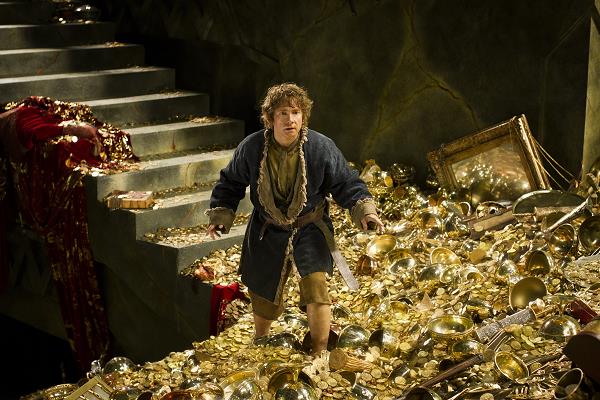
The Hobbit: The Desolation of Smaug (2013) / Fantasy-Adventure
MPAA Rated: PG-13 for violence and scary images
Running Time: 85 min.Cast: Martin Freeman, Richard Armitage, Ian McKellen, Luke Evans, Aidan Turner, Ken Stott, Evangeline Lilly, Orlando Bloom, Lee Pace, Stephen Fry, Benedict Cumberbatch, Mikael Persbrandt
Small role and cameo: Cate Blanchett, Stephen Colbert, Peter Jackson, Billy Connolly, Ian Holm, Christopher Lee, Andy Serkis, Hugo Weaving
Director: Peter Jackson
Screenplay: Fran Walsh, Philippa Boyens, Peter Jackson, Guillermo Del Toro (based on part of the book "The Hobbit" by J.R.R. Tolkien)
Review published December 13, 2013
 Continuing the short book that is stretched
out to epic saga proportions, Peter Jackson's
Continuing the short book that is stretched
out to epic saga proportions, Peter Jackson's